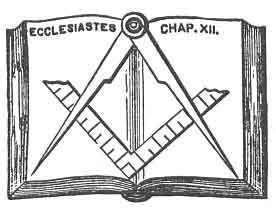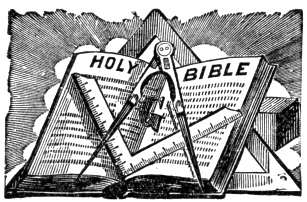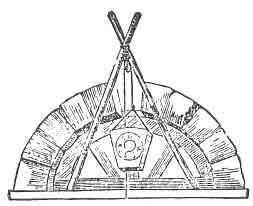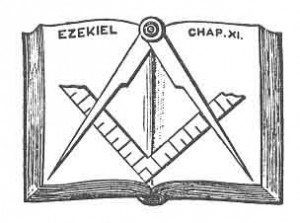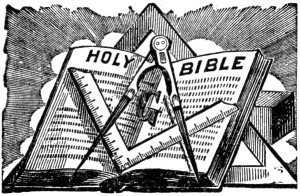 |
The traditional account of the death and several burials, and resurrection of Hiram Abiff, the widow’s son [as hereafter narrated], admitted as facts, this degree is certainly very interesting. The Bible informs us that there was a person of that name employed at the building of King Solomon’s Temple; but neither the Bible, the writings of Josephus, nor any other writings, however ancient, of which I have any knowledge, furnish any information respecting his death. It certainly is very singular, that a man so celebrated as Hiram Abiff, was an arbiter between Solomon, king of Israel, and Hiram, king of Tyre, universally
p. 70
acknowledged as the third most distinguished man then living, and in many respects the greatest man in the world, should pass off the stage of action in the presence of King Solomon, three thousand three hundred grand overseers, and one hundred and fifty thousand workmen, with whom he had spent a number of years, and neither King Solomon, his bosom friend, nor any other among his numerous friends even recorded his death or anything about him. I make these remarks now, hoping that it may induce some person who has time and capacity to investigate the subject, and promulgate the result of his investigation. I shall let the subject rest where it is, at present; it is not intended that it should form any part of this little volume. The principal object of this work is to lay before the world a true history of Freemasonry, without saying anything for or against it.
A person who has received the two preceding degrees, and wishes to be raised to the sublime degree of a Master Mason, is [the lodge being opened as in the preceding degrees] conducted from the preparation room to the door,
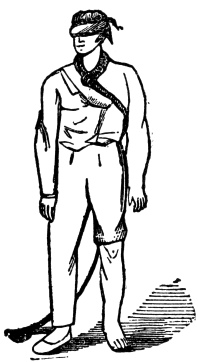 |
[the manner of preparing him is particularly explained in the lecture] where he gives three distinct knocks, when the Senior Warden rises and says, “Worshipful, while we are peaceably at work on the third degree of Masonry, under the influence of humanity, brotherly love, and affection, the door of our lodge appears to be alarmed.”
The Master to the Senior Deacon, “Brother Senior, enquire the cause of that alarm.”
The Senior Deacon then steps to the door and answers the three knocks that have been given by three more: [these knocks are much louder than those given on any occasion, other than that of the admission of candidates in the several degrees] one knock is then given without and
p. 71
answered by one within, when the door is partly opened and the Junior Deacon asks, “Who comes there? Who comes there? Who comes there?”
The Senior Deacon answers, “A worthy brother who has been regularly initiated as an Entered Apprentice Mason, passed to the degree of a Fellow Craft, and now wishes for further light in Masonry by being raised to the sublime degree of a Master Mason.”
Junior Deacon to Senior Deacon, “Is it of his own free will and accord he makes this request?”
Ans. “It is.”
Junior Deacon to Senior Deacon, “Is he duly and truly prepared.”
Ans. “He is.”
Junior Deacon to Senior Deacon, “Is he worthy and well qualified?”
Ans. “He is.”
Junior Deacon to Senior Deacon, “Has he made suitable proficiency in the preceding degrees?”
Ans. “He has.”
Junior Deacon to Senior Deacon, “By what further rights does he expect to obtain this benefit?”
Ans. “By the benefit of a pass-word.”
Junior Deacon to Senior Deacon, “Has he a pass-word?”
Ans. “He has not, but I have got it for him.”
The Junior Deacon to the Senior Deacon, “Will you give it to me.?”
The Senior Deacon then whispers in the ear of the Junior Deacon, “Tubal Cain.”
Junior Deacon says, “The pass is right. Since this is the case, you will wait till the Worshipful Master be made acquainted with his request and his answer returned.”

Moe is the founder of GnosticWarrior.com. He is a father, husband, author, martial arts black belt, and an expert in Gnosticism, the occult, and esotericism.

